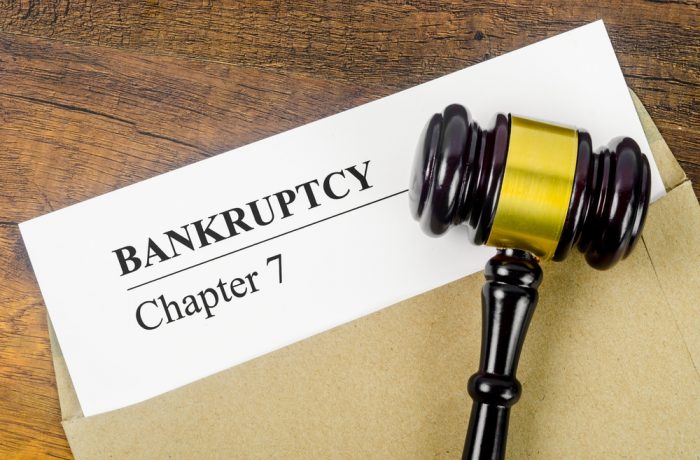By Brian Figeroux, Esq.
If a court determines that you owe money to an individual or a company, the creditor or debt collector may attempt to collect the debt by targeting your bank account. This process can result in your account being frozen or your funds being seized. However, both federal and New York state laws provide protections to ensure that individuals are not left completely without financial resources.
One of the most important laws in New York that shields a portion of your funds is the Exempt Income Protection Act (EIPA). This law prevents debt collectors from draining individuals’ bank accounts entirely, allowing them to maintain access to essential funds.
This article explores how the EIPA protects your money, the types of funds that are exempt from seizure, and what steps you can take if your account is frozen by a debt collector.
How Debt Collectors Can Freeze or Seize Your Bank Account
When a court issues a judgment stating that you owe money to a creditor, the debt collector may take the following actions:
- Freezing (Restraining) Your Account
- The debt collector can use the court judgment to order your bank to freeze your account, preventing you from accessing your funds.
- Your account remains frozen until the debt collector determines how much money can legally be taken or until you prove that your funds are protected under EIPA.
- Seizing (Levying) Your Funds
- The debt collector may hire a sheriff or marshal to seize money directly from your bank account.
- The collected amount is then applied toward your debt.
When EIPA Does Not Apply
The EIPA does not apply in certain situations:
- If you owe money to the government (e.g., unpaid taxes).
- If your debt involves child support, spousal support (alimony), or student loans.
- If the bank account belongs to a company rather than an individual.
For these types of debts, different rules apply, and additional protections may not be available.
RELATED NEWS:
How Much Money Is Automatically Protected?
The EIPA guarantees automatic protection of a certain amount of money in your bank account. This amount is adjusted periodically based on the minimum wage in New York.
As of January 2025, the protected amounts are:
- $3,960 for residents of New York City, Long Island, and Westchester.
- $3,720 for residents of the rest of New York state.
What does this mean for you?
- If your account balance is below the protected amount, your bank cannot freeze your account.
- If your balance exceeds the protected amount, only the excess funds can be frozen or seized.
- If you own multiple accounts, each account is protected separately up to the designated limit.
Government Benefits and Retirement Funds: Additional Protections
Beyond the automatically protected amount, certain government benefits and retirement funds are also protected from debt collection. These funds are not automatically exempt, so you must take action to protect them.
Protected Funds
Examples of protected income sources include:
- Social Security and Supplemental Security Income (SSI)
- Disability benefits
- Unemployment insurance
- Workers’ compensation
- Veterans benefits
- Public assistance (welfare)
- Child support, alimony, or spousal support payments
- Pension and retirement payments (401(k), IRA, or other plans)
- Black lung benefits
Protecting Wages from Debt Collection
- Under New York law, 90% of your wages or salary earned in the last 60 days is protected from debt collection.
Even though these funds are legally protected, you must claim them as exempt if your account is frozen.
How to Claim Additional Exemptions
If more of your money is protected under EIPA (such as government benefits or retirement funds), you must take action to release it.
Steps to Protect Your Funds
- Receive an Exemption Claim Form
- When your account is frozen, the bank must send you two copies of an exemption claim form.
- Complete Both Copies
- Fill out the forms and claim that your money is exempt due to its source (e.g., Social Security, pension, etc.).
- Send the Forms
- Mail one copy to your bank and one copy to the debt collector who froze your account.
- Keep a copy for your records.
- Provide Proof of Exemption
- To expedite the process, include proof, such as recent bank statements, showing the source of your income.
What Happens Next?
- The debt collector has eight days to object to your claim.
- If the debt collector does not object, the bank must release your funds after eight days.
Missed the 20-day deadline?
- You can still submit proof to the debt collector or go to court to request help in getting your account released.
Didn’t receive an exemption claim form?
- Contact your bank immediately and request the form. Under EIPA, the bank cannot freeze your account unless the debt collector provides these forms.
What to Do If Your Bank Violates EIPA
If you believe your bank has wrongfully frozen your account or is not following EIPA, take the following steps:
- Visit a local branch
- Bring a copy of the EIPA guidelines and speak with a branch manager.
- Seek legal help
- Contact an attorney, such Figeroux & Associates – Debt Collection and Bankruptcy Division for assistance. Call 855-768-8845 to schedule a consultation.
- File a complaint
- If your rights under EIPA are being violated, you can file a complaint with the New York State Attorney General’s Office.
Conclusion
The Exempt Income Protection Act (EIPA) is a crucial law designed to prevent debt collectors from leaving individuals without financial resources. Understanding your rights and how to claim protected funds can help you retain access to essential money if a court judgment is issued against you.
If your account is frozen, act quickly by filing an exemption claim and seeking legal help if needed. The law is on your side, and with the right steps, you can protect your financial stability.





